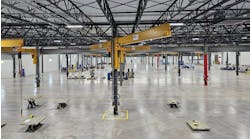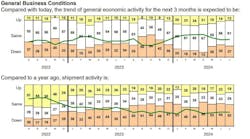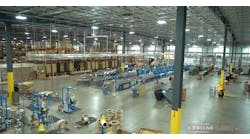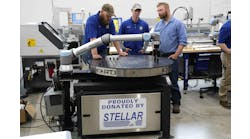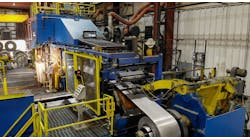Oshkosh Corporation reports net loss of $17 million in fiscal 2009 second quarter
Oshkosh Corporation reported fiscal 2009 second-quarter net sales of $1.3 billion and a net loss of $17.7 million, or $0.24 per share, excluding non-cash intangible asset impairment charges, compared with earnings per share of $0.97 on net sales of $1.8 billion and net income of $72.6 million for the second quarter of fiscal 2008.
Including previously announced pre-tax non-cash impairment charges of $1.2 billion ($15.78 per share, net of taxes) related to goodwill and other long-lived assets, the company reported a net loss of $1.19 billion, or $16.02 per share, for the second quarter of fiscal 2009.
“Our defense, Pierce fire apparatus and airport products businesses all delivered double-digit revenue increases and higher operating income in the second quarter,” said Robert G Bohn, Oshkosh chairman and chief executive officer. “These gains and significant additional cost reduction actions implemented in the quarter were not enough to overcome sharply lower demand at a number of our other businesses, particularly those serving construction-related markets, like our access equipment and concrete placement businesses. As a result, we posted a net loss of 24 cents per share, excluding the impact of the non-cash impairment charges that were recorded in the quarter.
“While the global recession has had a significant impact on several of our businesses, we have been working diligently to manage through this challenging environment. During the quarter we implemented additional cost reductions to increase our expected fiscal 2009 savings from $150 million to more than $200 million. Even with these aggressive actions, the effects of the global recession and credit crisis lead us to believe Oshkosh will record a net loss for the full fiscal year, excluding the impact of the impairment charges recorded in the second fiscal quarter. We remain committed to continue doing what is necessary to further reduce our cost structure, drive operational improvements and increase cash generation to manage the business through this period of economic weakness.”


